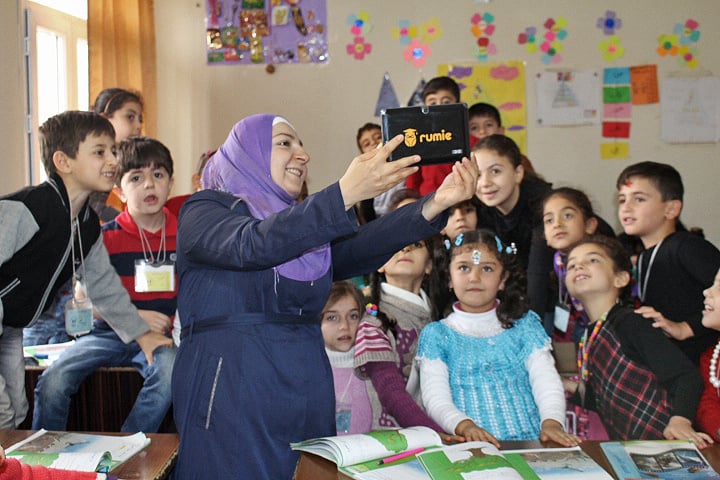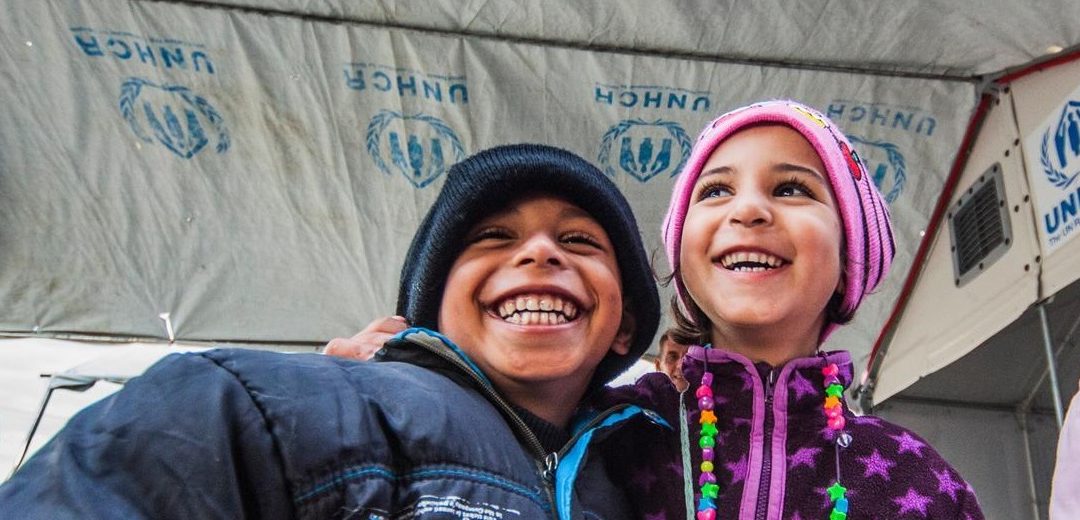About 40 years ago, my parents and their relatives were stuck in refugee camps after they were forced to flee their homes in Vietnam. They faced a dangerous and uncertain future, running from one camp to another, not knowing where life would take them next. And yet, one generation later, here they are today: successful Canadian citizens who have raised a family with a promising future. This was only made possible when Canada decided to resettle nearly 60,000 Southeast Asian refugees between 1979 and 1980 over 100,000 Vietnamese refugees in total. My story is one of thousands that Canadians tell which exemplify, so precisely, what our nation represents at our core.
Fast forward to today, and it seems we’ve taken steps backward: Canada has taken in just under 2,500 Syrian refugees since 2013, despite pledging over 10,000. The United States has confirmed just 20,000 resettlement submissions. Germany is doing it’s part, with close to 40,000 confirmed pledges, representing approximately half of the European Union total.
On September 2nd, the body of a three-year-old boy washed ashore on a Turkish beach. His family was hoping to resettle to Canada (the boy’s aunt lives in the Vancouver area). Only after that incident, Justin Trudeau – then a Canadian Prime Minister candidate – promised to increase Canada’s intake to 25,000 if he was elected. Five days later, US President Barack Obama announced the US would aim to resettle 10,000 Syrian refugees over the next year.
The narrative above is representative of what has dominated the news headlines the past few months: media and advocacy groups lobby for governments to accept more refugees, governments’ then move an inch, followed by more media and advocacy lobbying. This has captured headlines around the world, as bureaucrats have hotly contested this in political debates, proudly trumpeting small gains – even though these policies only represent a small portion of overall foreign policy. And that is exactly where the problem lies.
While encouraging governments to accept more refugees is a worthy and important cause, it only really impacts a fraction of the overall issue. Amnesty International estimates only 2.6% of approximately 4 million Syrian refugees have been offered resettlement places globally. The reality is, the majority of refugees will have to go back to Syria at some point to rebuild their lives and their country. In fact, it’s already happening: many refugees cannot afford to go to Europe and are booking a one-way ticket home back into the war zone they previously fled in hopes of a better life than what they currently have in refugee camps. The United Nations is reporting that returnees per day from Jordan nearly doubled from 66 in July to 129 in August. And frankly, this is not a negative reflection on the NGOs that work to protect and assist refugees – they simply do not have the resources to effectively manage over 4 million Syrian refugees.
It’s more of an indictment on the rest of us – the public, the media, the governments, and the advocacy groups for focusing entirely on the issue of accepting migrants – primarily because it’s an issue that affects us directly here at home – and neglecting the 97% who either can’t or don’t want to leave and who will be left with the task of someday rebuilding Syria.
So why is all the money and attention flowing to the lucky few who are able to make it out? What are we doing to help those who are stuck in refugee camps rebuild their lives? How can we help them rebuild their futures? Aren’t they the ones that need the most help? The refugees that gain asylum from a developed country will be able to start a new life in a stable environment (albeit while facing significant challenges in doing so), while life for refugees in camps are put on hold and some are even deciding the dangerous trip back home is worth the uncertainty.
Specifically, youth and children are losing precious time during their early developmental years – they won’t be able to get these back. Imagine if our youth were forced to stop learning for a year – we’d all be up in arms.
This is the generation we need to inspire and encourage.
They are the future and will ultimately be tasked with rebuilding Syria. I’m not saying the asylum and migration crisis isn’t important. It’s very important, and rightly getting attention. But we need to ensure the others who don’t have the opportunity to make it out also get the attention they so desperately need.
So how can you help?
UNHCR works alongside various NGOs to provide shelter and basic essentials for the 97% and they can definitely use your help. In addition, with limited resources during a crisis like this, it’s important to think about how we can get the most from our donations.
The Rumie Initiative is a registered Canadian charity that delivers free, digital learning content to underprivileged children via affordable $50 tablets. We’re partnering with The Syrian Kids Foundation, who runs the Al-Salam School in a Syrian refugee camp just a few miles from Syrian border in Turkey. We’ve just kicked off our LearnSyria campaign to raise money to purchase tablets (100% of public donations go to directly to the school) to be distributed to kids in the refugee camp. The Al-Salam School is already using Rumie Tablets which contain a full curriculum of Syrian e-textbooks, video lessons, and educational games that are tailored to each grade level. Our campaign goal is $50,000 to fund an additional 1000 tablets – and we’re already seeing good progress.

Rumie Tablets being used at the Al-Salam School in a Syrian refugee camp.
Your help is needed. Let’s make sure we aren’t distracted by news headlines and political debates. The youth and the 97% is what really represents the future of Syria. And they need your support.
This blogpost is a guest submission. The ideas expressed in guest blogposts are not endorsed by UNHCR/UNHCR Innovation.
About the Author
Victor Lu leads Business Development & Fundraising at Rumie and is a Senior Consultant at Monitor Deloitte based in Toronto. Rumie was named the World’s Best Social Startup in 2014 and we organize the best free learning resources available online and deliver them to communities on $50 offline-usable tablets. Rumie has been previously covered previously in Forbes, The Toronto Star, and The Huffington Post.

